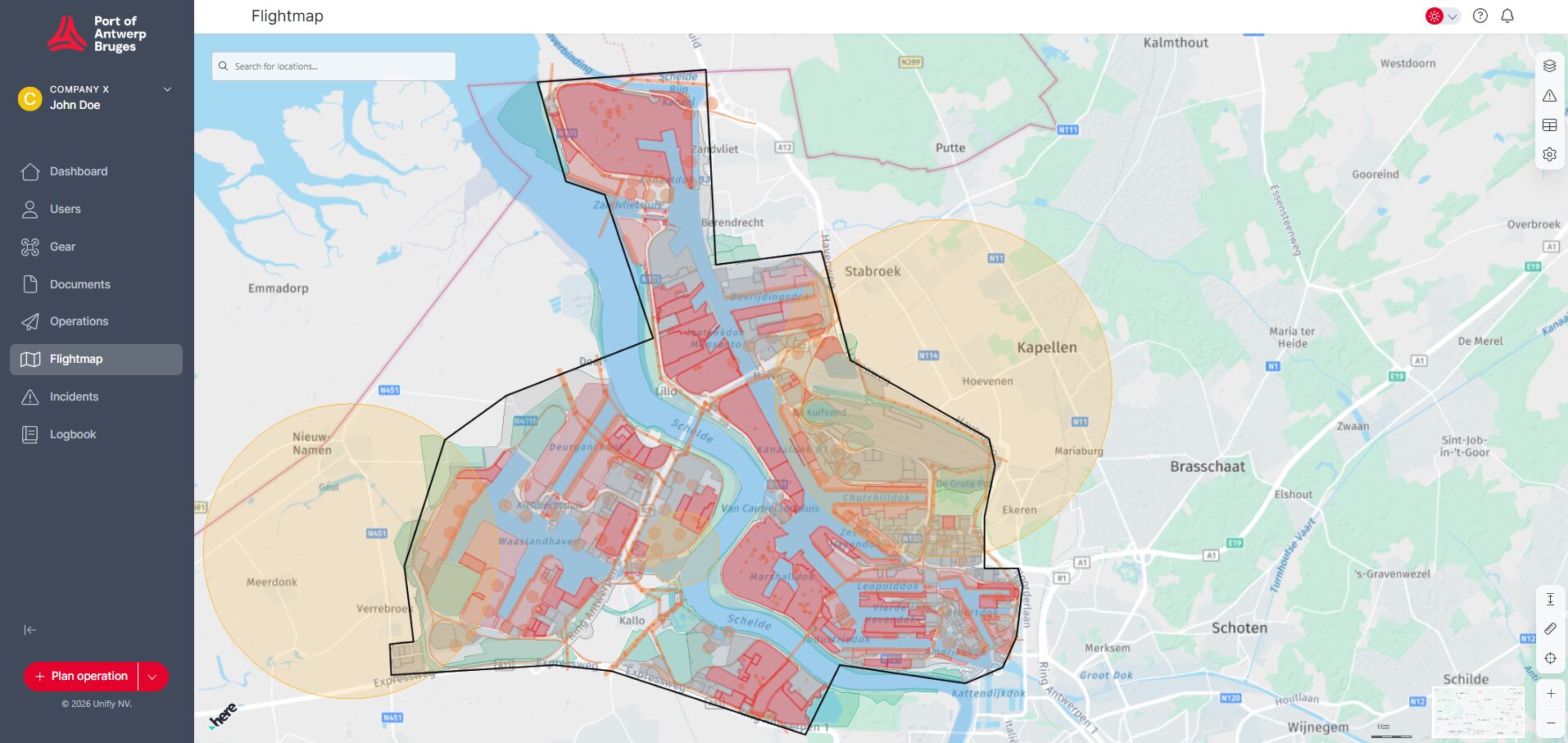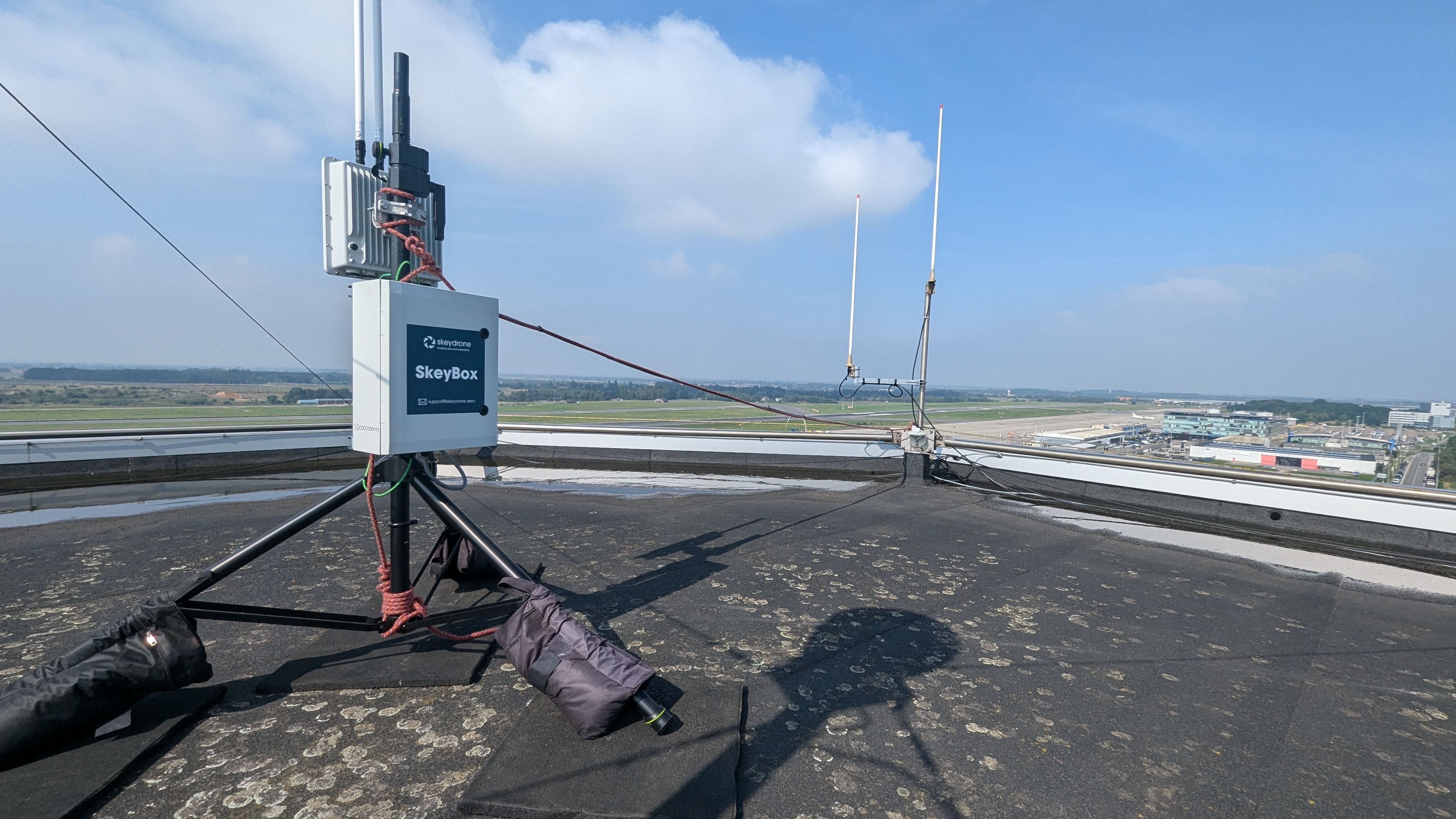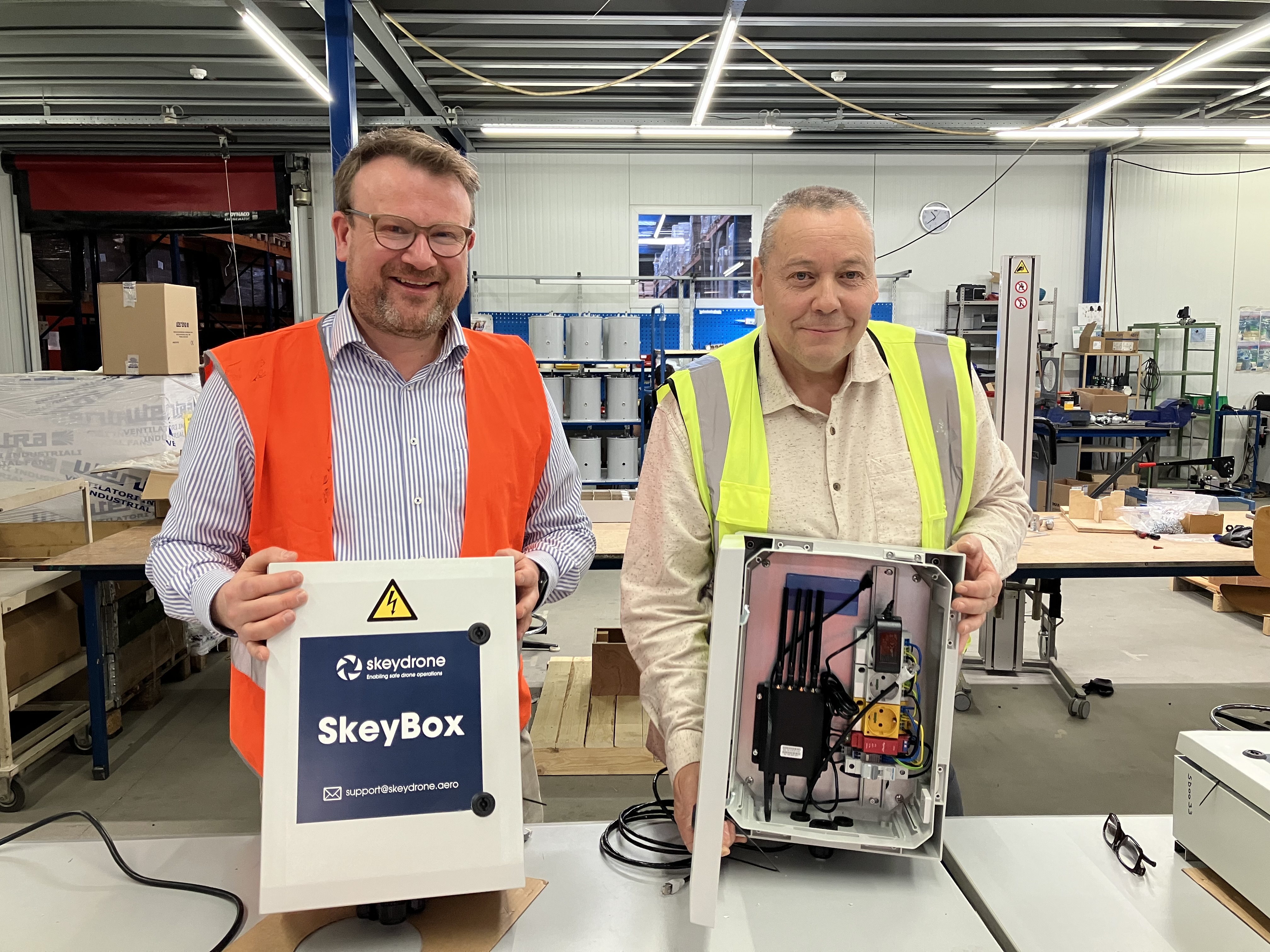The new European Regulation for drones will change the airspace for good. This will have a major impact on air traffic control as well. skeyes and its subsidiary SkeyDrone have been preparing for this moment for a long time and are ready to take up their role in a new era of aviation, guaranteeing the safety of all air traffic.
Starting from 31/12/2020, a new European regulation (EU IR 2019/947) concerning drones will enter into force. This regulation provides a new framework for the use of drones in different types of airspace, most notably in low-level airspace. skeyes has been preparing for this change during the last months by drafting a concept of operations for the handling of drones by the skeyes ATS (Air Traffic Services) units.
Johan Decuyper, CEO skeyes: “skeyes and SkeyDrone are ready for the future of drone traffic, as we will be playing our part in the integration of drone operations in the Belgian airspace. By creating new ways of working, and keeping a close coordination with the drone community via the Belgian Civil Drone Council, skeyes ensures its compliancy with the European drone regulation, as well as the related Belgian Royal and Ministerial decrees, which enter into force in December 2020. “
The general principle of the new regulation is that drones will be allowed to operate in the entire airspace except if there is a “UAS (Unmanned Aircraft System) geographical zone”. For instance, around major airports, these zones are created to define constraints or to prohibit access to these zones in order to guarantee safety of operations for all airspace users.
https://mobilit.belgium.be/nl/luchtvaart/vliegen-met/drones-uas
Therefore, UAS geographical zones are created within controlled airspace managed by skeyes and for the Kortrijk Radio Mandatory Zone via a Ministerial decree. These UAS geographical zones have access criteria, depending on, among others, the category of the drone operation. Other geographical zones in Belgium will be managed by the relevant BCAA-appointed “UAS geographical zone manager”. An overview of these zones will be available on https://map.droneguide.be as of 31/12/2020.
Along with the implementation of the new regulation, skeyes also took the opportunity to provide easy access for drone operators in the lowest volumes of its controlled airspace. This was done by subdividing the geozone in different areas, with less stringent requirements the further you are from the airport.
Developed by our subsidiary SkeyDrone, a dedicated digital platform called the Drone Service Application enables access to these geographical zones. The tool is a first step towards implementing the so-called U-space and paves the way for the emergence of U-space Service Providers (USSPs).
Hendrik-Jan Van Der Gucht, Managing Director SkeyDrone:
“We managed to bring this challenging project to a successful end through close cooperation with the operational experts of skeyes. Our software solution, which contains a number of unique features, will be used in at least 6 different UAS geozones in Belgium. By integrating it with the technology of our industrial partners we will be ready to become one of the first U-space service providers in Europe.”
Check out our tool here:




